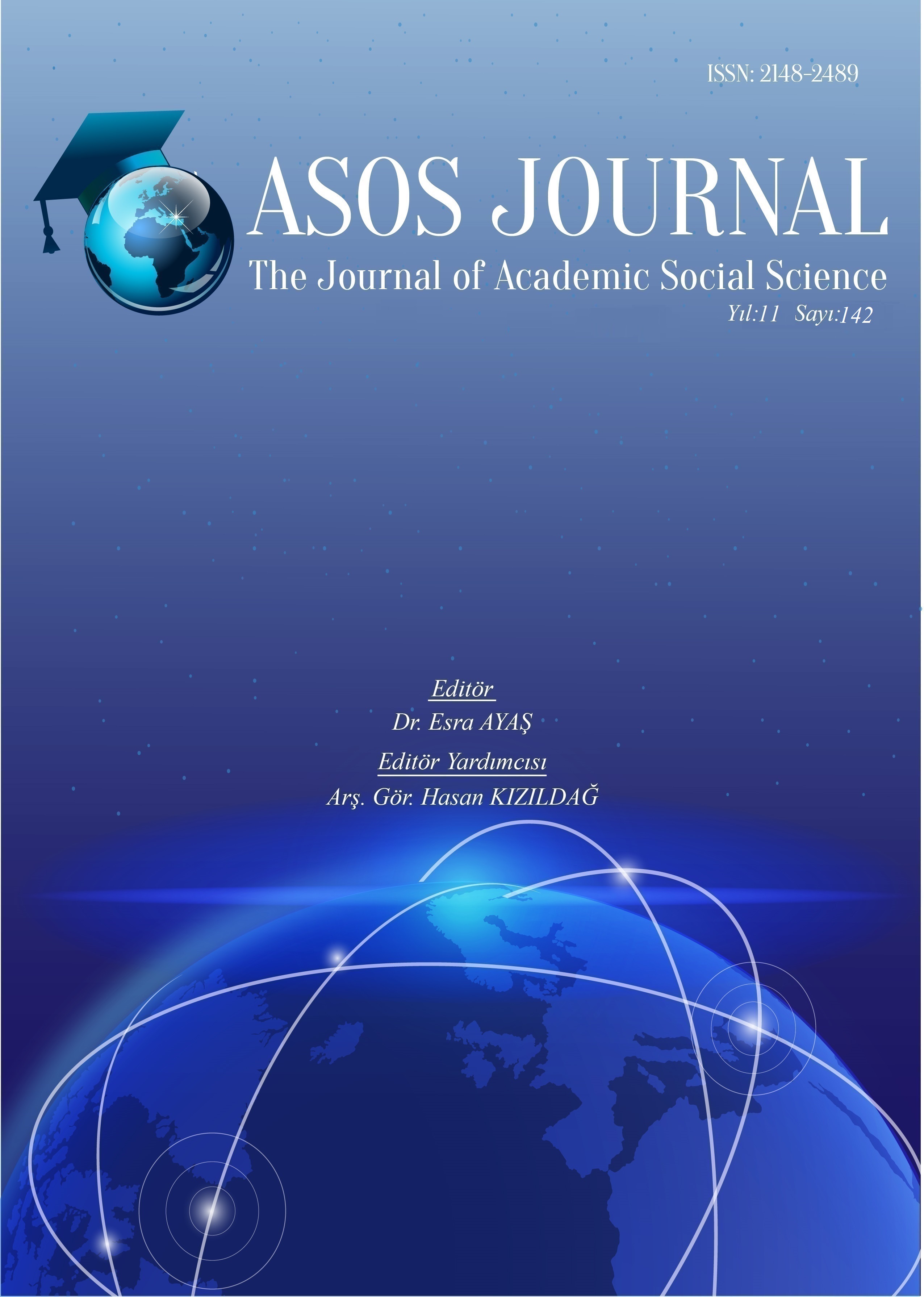Author :
Abstract
Bu çalışmada ana dili Rusça olanların ana dilini konuşma sürecindeki kod değiştirme eğilimlerini tespit etmek amaçlanmıştır. Çalışma grubunu ana dili Rusça olup Türkçeyi ikinci dil olarak kullanan 20 katılımcı oluşturmuş, katılımcılarla yapılandırılmış görüşme formu kapsamında görüşme gerçekleştirilmiştir. Katılımcılarla 5 boyuta sahip görüşme formu ile görüşme yapılmıştır. Boyutlar; genel bilgiler, kod değiştirme, kod karıştırma, fonetik girişim ve stilistik girişim şeklinde belirlenmiştir. Nitel araştırma yöntemlerinden durum çalışmasının temel alındığı çalışmada elde edilen veriler, MAXQDA programı aracılığıyla nitel analize tabi tutulmuştur. Çalışma sonucunda elde edilen bulguların başlıcaları şöyledir: Katılımcıların %50’sinin kod değiştirmeye sık sık, %35’in nadiren başvurduğu görülmüştür. Katılımcıların %15’i ise kod değiştirmeye hiç başvurmadığını belirtmiştir. Çalışma grubundan hareketle dil seviyesi yükseldikçe kod değiştirme eğiliminin azaldığını söylemek mümkündür. Kod değiştirme sebepleri kapsamında ise sırasıyla karşılıksızlık, duygu yükü, kolaylık, muhatap, uyum/alışkanlık, mizah ve telafi olduğu görülmüştür. En yüksek oranda gösterilen kod değiştirme gerekçesi, karşılıksızlık olmuştur.
Keywords
Abstract
In this study, it is aimed to determine the code-switching tendencies of native Russian speakers in the process of speaking their mother tongue. The study group consisted of 20 participants whose mother tongue is Russian and who use Turkish as a second language, and the participants were interviewed within the scope of the structured interview form. The participants were interviewed with an interview form with 5 dimensions. Dimensions; general information, code-switching, code mixing, phonetic interference and stylistic interference. The data obtained in the study, which is based on the case study, which is one of the qualitative research methods, was subjected to qualitative analysis through the MAXQDA program. The main findings obtained as a result of the study are as follows: It was observed that 50% of the participants used code changing frequently, 35% rarely. 15% of the participants stated that they never applied to change the code. Based on the study group, it is possible to say that the tendency to change code decreases as the language level increases. Within the scope of the reasons for changing the code, it was seen that reciprocity, emotional load, convenience, addressee, harmony/habit, humor and compensation were respectively. The reason for changing the code with the highest rate was non-refundable.
